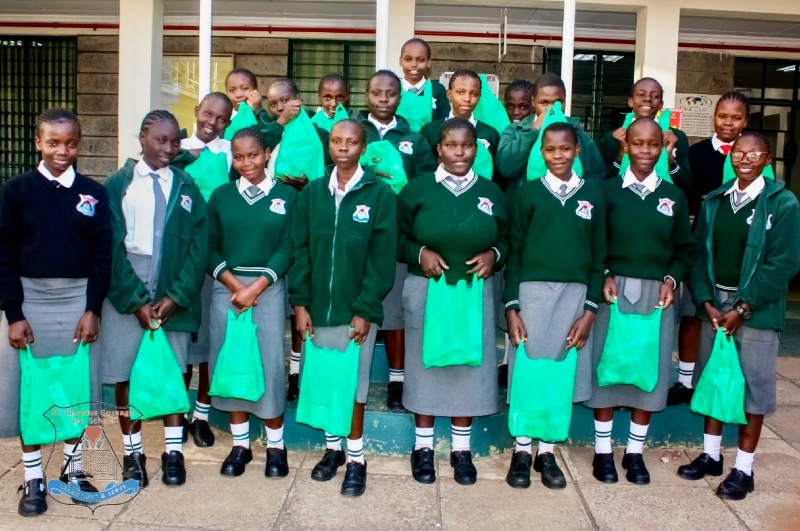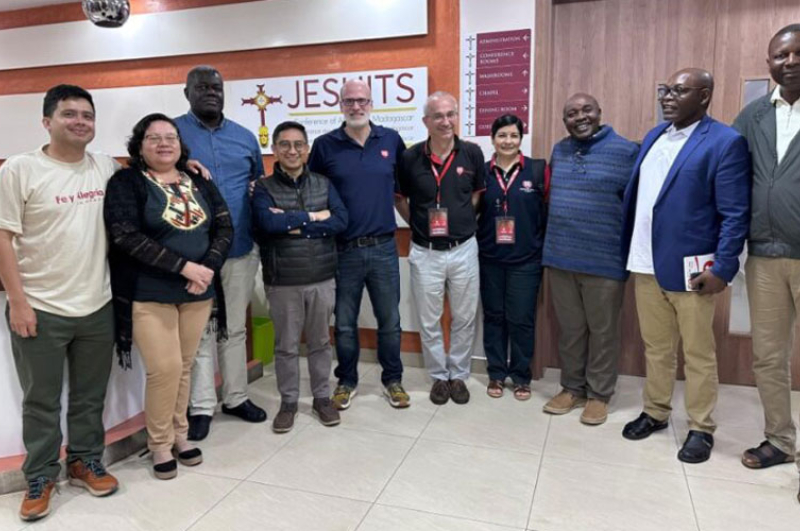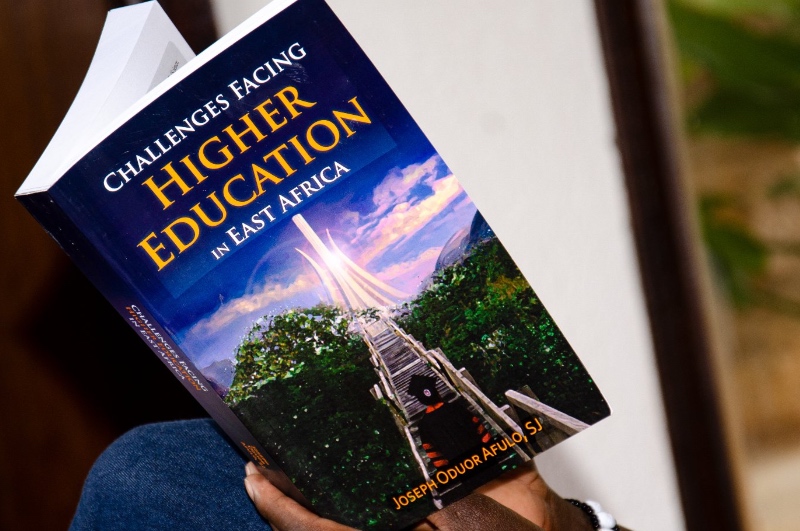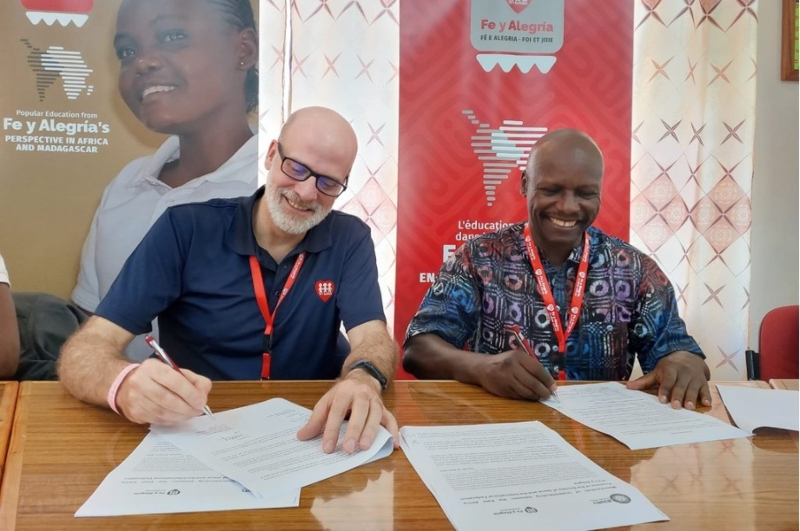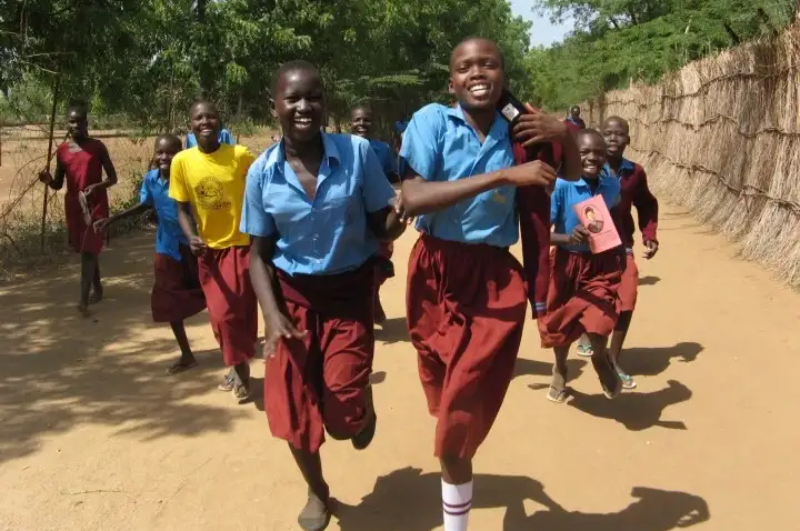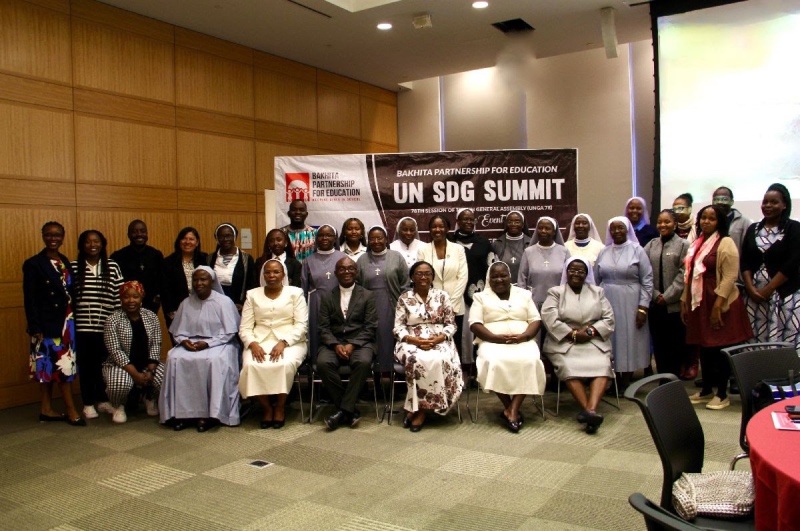

About two hundred globally acclaimed experts in education and various leaders of the Catholic religious sisters and the Jesuit Network in Africa and beyond attended the event both in person and online.
The event was designed to highlight the substantial contribution of Catholic education in expediting the realization of sustainable development goals in Africa, particularly SDG 4 (Quality Education) and SDG 5 (Gender Equality), while elevating the narratives, experiences, and insights of girls from underserved and marginalized communities in Africa.
Fr. Charles Chilufya, S.J, opened the event with a strong reflection on the progress made thus far, “The 78th session of the United Nations General Assembly (UNGA 78) represents the mid-point towards the 2030 Agenda and the Sustainable Development Goals (SDGs) deadline. However, many nations remain significantly behind, or even off-course, in meeting targets for gender equality and educational access. In fact, the UN Women and UN DESA’s 2023 gender snapshot report unveiled just few days ago, revealed that if current trends are to go by, an estimated 110 million girls and young women across the world will be out of school in 2030, while the SDG indicators aimed at women’s equality will not be met.”, he stated.
Fr. Chilufya, the Chairman of the Bakhita Partnership for Education (BPE), urged key stakeholders present, including UN Women, AU CIEFFA, the Conrad Hilton Foundation, Catholic Religious Sisters, among others, to unify their perspectives and actions on transforming education in Africa. Such collective effort, he believes, can create a catalytic impact on progress.
The event recognized the significant role the Catholic religious sisters have played in education in Africa, particularly in providing access to education for marginalized communities and promoting the empowerment of women. There was consensus amongst delegates that the Catholic church had established numerous schools, colleges, and vocational training centers across the continent, often in remote and underserved areas, where these sisters have dedicated themselves to teaching various subjects, from basic literacy all the way to vocational training, thus equipping students with practical skills that can help them secure employment and improve their livelihoods.
Sr. Jane Wakahiu, LSOSF, Ph.D., Associate Vice President of the Hilton Foundation and Head of Catholic Sisters, emphasized the setbacks in gender and education progress in Africa due to the COVID-19 pandemic, especially for girls. In addressing this challenge, she noted, “The Conrad Hilton Foundation has committed millions towards enhancing both access and quality of education for African girls. Among the foundation's supported initiatives, the Bakhita Partnership for Education stands out. Through this project, over 300 Catholic Sisters have championed the rights of girls in five countries, directly aiding more than 4,500 vulnerable girls.”
"The African Union Commission was represented at the event by its International Centre for Girls and Women’s Education in Africa (AU CIEFFA). The acting Director, Mrs. Simone Yankey, conveyed their message to the attendees. In her statement, Mrs. Yankey noted, “The AU CIEFFA was in its 3rd Strategic implementation cycle underpinned by 4 focus areas namely; Gender Responsive Education Frameworks, Curriculum reform and Teacher Education, Science, Technology, Engineering & Arts Skills Development, and Education in Emergence and humanitarian context.” She added that beyond High-level meetings with leadership of AU member states on affirmative action on youth and women, they also work with traditional leaders who play a key role at grassroot level. She further announced that AU Theme for Year 2024 will be devoted to Education.
Other guest speakers at the event included Brighton Kaoma, UN SDS Network Youth Global Director, Dr. Jemimah Njuki, Chief of the Economic Empowerment section at UN Women, and Sr. Dr. Rosemary Nyirumbe, Ph.D., Director of St. Monica’s Girls’ Tailoring Center, Uganda.
A standout moment of the event came when Ms. Brenda Karimi, a survivor of abuse from Kenya, recounted her journey of turning her traumatic experience into a force for positive change. Emphasizing the urgency to address the countless unreported sexual abuse incidents, which she likened to a 'silent epidemic,' she highlighted their profound impact on victims' futures. Today, Ms. Karimi leads the Smart Girl Mentorship Programme, mentoring girls throughout Africa.
The event concluded with a brief networking reception, allowing delegates to delve deeper into the initiatives and contributions of the Bakhita Partnership for Education across Africa.
Related Articles

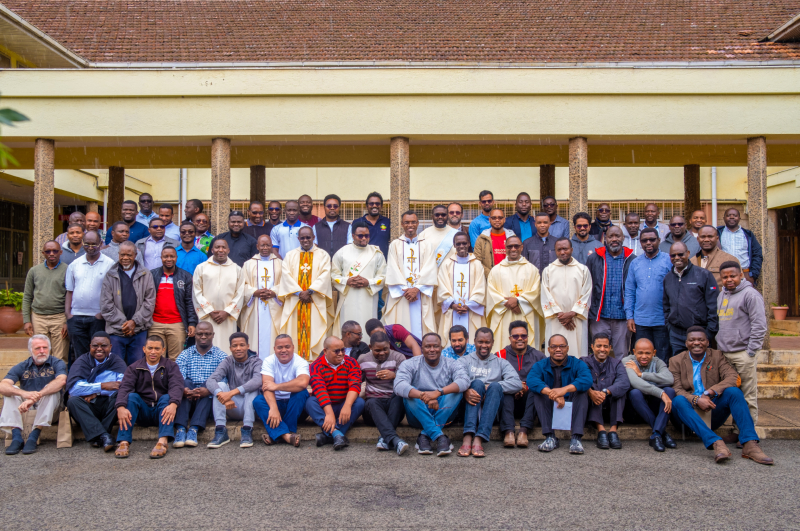
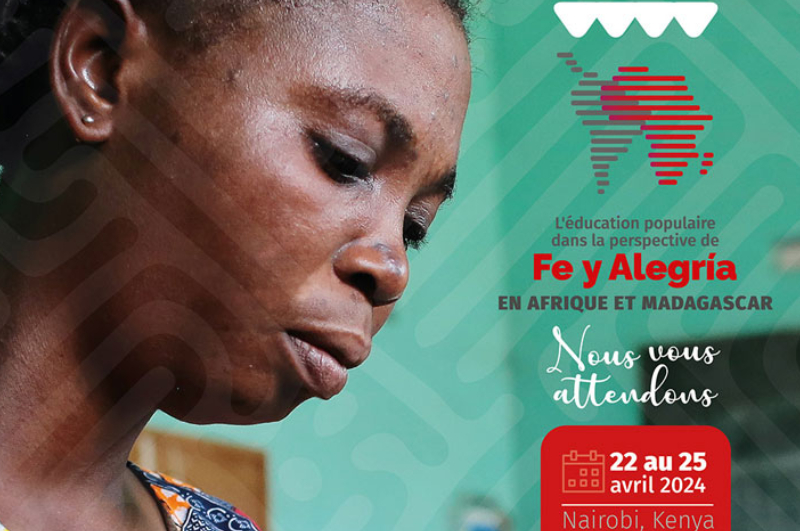
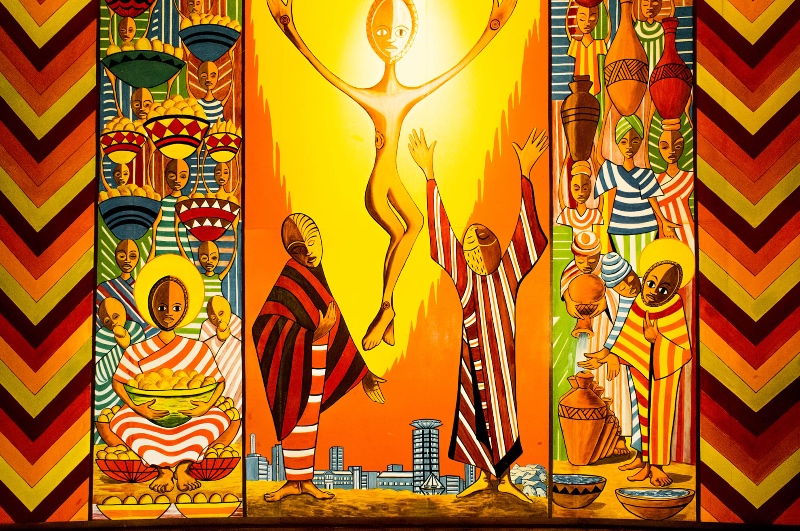
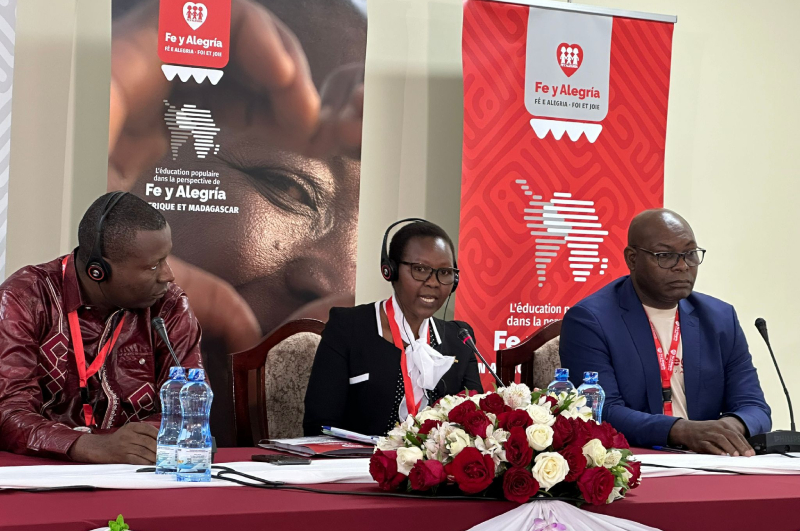
Select Payment Method
Pay by bank transfer
If you wish to make a donation by direct bank transfer please contact Fr Paul Hamill SJ treasurer@jesuits.africa. Fr Paul will get in touch with you about the best method of transfer for you and share account details with you. Donations can be one-off gifts or of any frequency; for example, you might wish to become a regular monthly donor of small amounts; that sort of reliable income can allow for very welcome forward planning in the development of the Society’s works in Africa and Madagascar.
Often it is easier to send a donation to an office within your own country and Fr Paul can advise on how that might be done. In some countries this kind of giving can also be recognised for tax relief and the necessary receipts will be issued.


